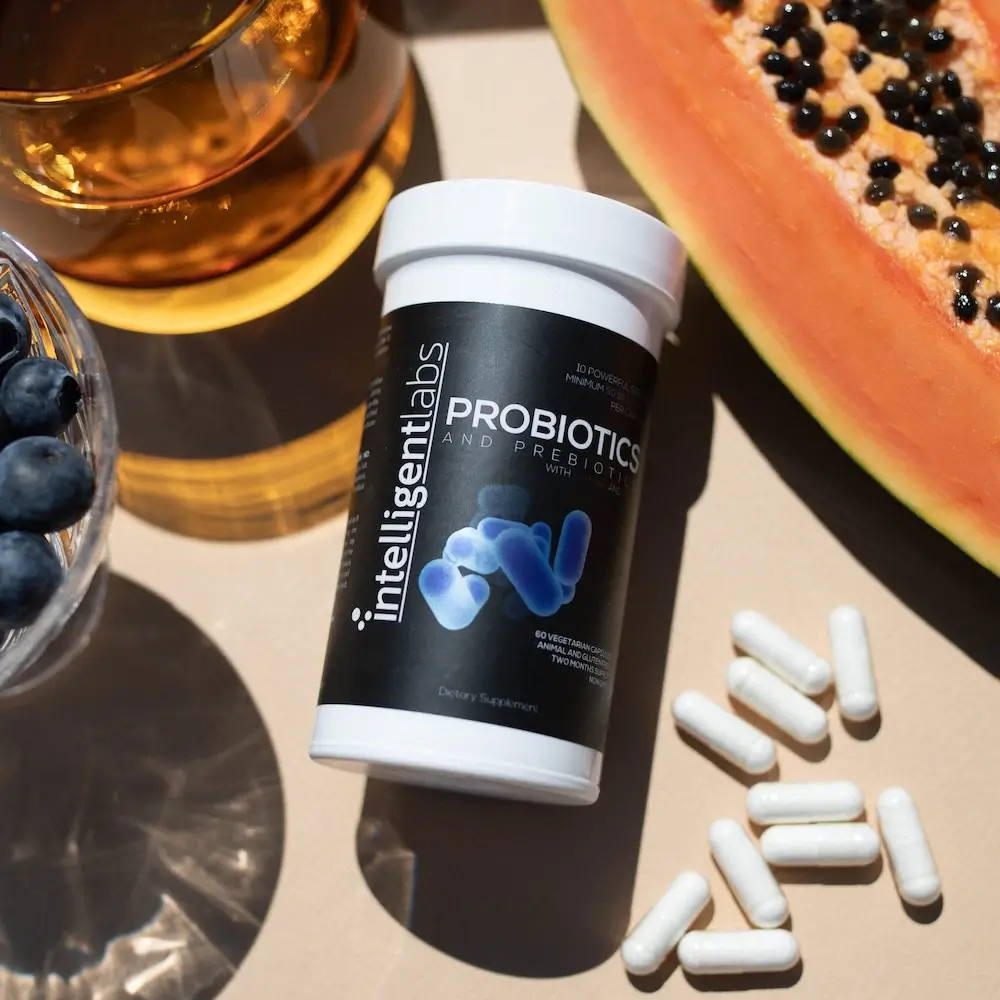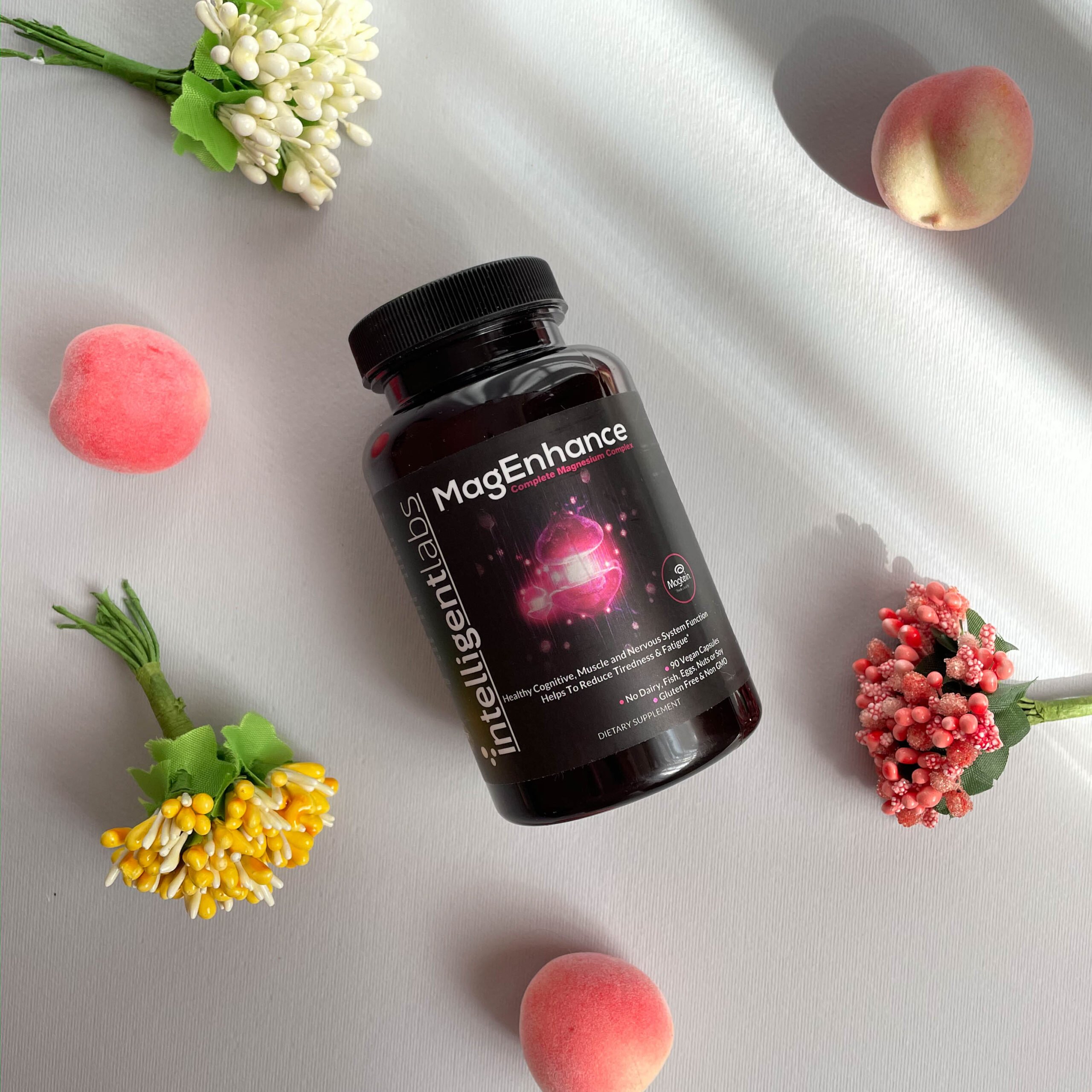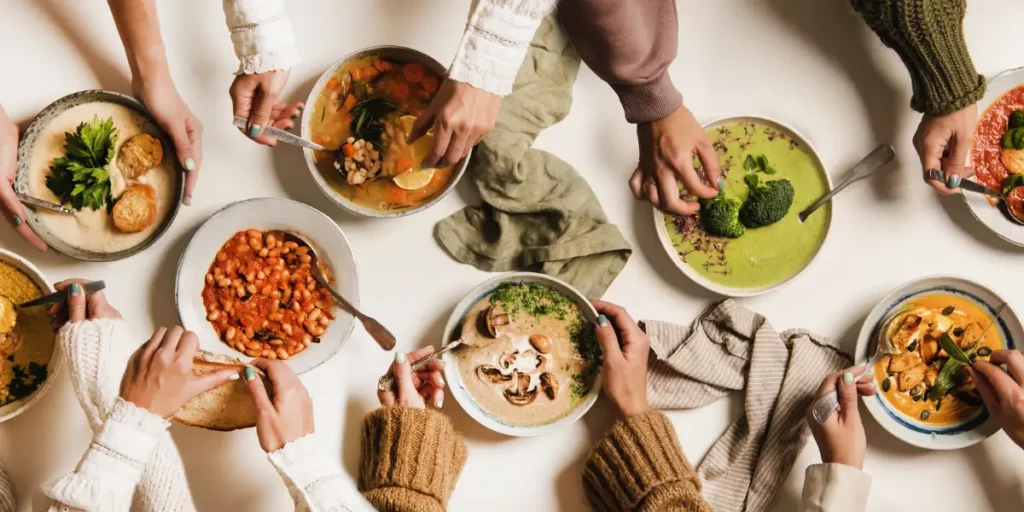The holidays are filled with joy, indulgence, and a lot of delicious food. But after the festivities, many of us are left feeling bloated, heavy, and sluggish. If you’re looking for effective ways to debloat and cleanse your body quickly, you’re in the right place.
In this post, we’ll cover everything from hydration and anti-bloating foods to high-quality supplements and detox strategies that will leave you feeling lighter and more energized.
Table of Contents
Why do you feel bloated after the holidays?
Bloating after the holidays is common due to overeating, consuming salty or sugary foods, drinking alcohol, and being less active.1 These habits lead to:
- Water retention from high sodium intake.
- Gas buildup from rich, fiber-lacking foods.
- Sluggish digestion due to larger-than-usual meal portions.
Understanding why bloating happens is the first step to tackling it effectively. Now let’s explore how to beat the bloat and reset your system.
Here are 10 tips to debloat fast after the holidays
A post-holiday detox doesn’t have to be extreme. Simple, natural strategies can help your body reset. Here are some of our top tips:
1. Stay hydrated
Water is essential for nearly every bodily function, including digestion. Staying hydrated helps your body flush out excess sodium, which is a common culprit behind water retention and bloating. Adequate water intake also prevents constipation, ensuring smooth movement through the gastrointestinal tract.2
After the holidays, begin each morning with a glass of warm water and lemon to kickstart your metabolism. Carry a reusable water bottle with you to encourage regular sipping throughout the day.
For an added boost, try coconut water or electrolyte drinks (low in sugar) to rehydrate and balance your body’s fluids after alcohol or salty foods.
2. Reduce sodium intake
Excessive sodium causes your body to retain water to balance the high salt levels, leading to bloating. Many processed and packaged foods are high in sodium, even if they don’t taste salty.
One way to reduce sodium intake is to prepare meals using fresh ingredients to control the amount of salt added. Enhance flavors naturally by using herbs, spices, lemon juice, or vinegar.
If you must use non-fresh ingredients, read labels and check the nutrition facts panel for sodium content. The American Heart Association recommends keeping sodium intake below 2,300mg per day.3
3. Increase fiber gradually
Fiber is crucial for healthy digestion, but adding too much too quickly can cause gas and bloating. A sudden increase doesn’t give your gut time to adjust, leading to discomfort.
Gradual fiber intake is recommended to prevent gastrointestinal discomfort. Try adding one fiber-rich food to your diet every few days. Include both soluble fiber (oats, apples) and insoluble fiber (whole grains, nuts) for balanced benefits. Remember to stay hydrated to help the fiber move smoothly through your system.4
4. Try Probiotics

Probiotics are essential for restoring balance to your gut microbiome. Holiday eating often disrupts this balance, leading to gas, bloating, and discomfort.
To debloat fast, include probiotic-rich foods like yogurt, kefir, sauerkraut, or kimchi in your diet.
Additionally, you may want to take a high-quality probiotic supplement like our 50 Billion CFU Adult Probiotics & Prebiotics to help replenish good bacteria in your gut.
5. Avoid carbonated drinks
Carbonated drinks introduce carbon dioxide into your digestive system, which can lead to bloating and discomfort. The gas from these drinks can get trapped in your stomach, making you feel puffier.5
Instead, swap them out for still water infused with fruits like cucumber, lemon, or berries for a refreshing and flavorful alternative. Herbal teas such as peppermint or ginger are also great choices to aid digestion and reduce bloating.
6. Limit – or avoid – alcohol
Alcohol can irritate your gut, disrupt the balance of good bacteria, and overburden your liver, especially after holiday overindulgence.6
To support your body’s recovery, focus on boosting your natural glutathione levels. Glutathione, a powerful antioxidant, plays a key role in liver detoxification.
You can naturally increase it by eating sulfur-rich foods like broccoli, garlic, and onions, as well as selenium-rich options like Brazil nuts and eggs.
For a faster and more effective detox, consider adding our Liposomal Glutathione to your daily routine!
7. Eat potassium-rich foods
Potassium helps balance sodium levels in the body, reducing water retention and bloating. It acts as a natural diuretic, promoting urine production to expel excess fluids.7
To boost potassium levels, add fruits and vegetables into your diet. Fruit options include bananas, oranges, and cantaloupe. Vegetable options include spinach, sweet potatoes, and tomatoes.
8. Get moving and exercise!
Exercise helps stimulate the muscles in the intestines, speeding up digestion and helping to move trapped gas through the system. It also boosts your metabolism for a better long-term reset.8
If you’re wondering how to debloat fast with physical activity, do the following:
- take a 10-15 minute walk after meals to aid digestion
- practice yoga poses like Child’s Pose, Happy Baby, or Seated Forward Bend to relieve gas
- aim for at least 150 minutes of moderate exercise each week to maintain a consistent routine.
9. Get adequate sleep

Adequate sleep helps regulate hunger and stress hormones, reducing bloating. Meanwhile, poor sleep can increase appetite and digestive issues.
To improve sleep, stick to a regular sleep schedule, keep your bedroom cool and dark, and avoid screens an hour before bed.
Need extra help? Try our MagEnhance Triple Magnesium Complex for better relaxation and sleep.
10. Avoid sugar alcohols (sweeteners)
Sugar alcohols like sorbitol and xylitol are not fully absorbed in the small intestine and can ferment in the gut. They might cause bloating, gas, and even diarrhea in some people, especially if they consume large amounts or are not used to them.9
Be cautious with diet sodas, sugar-free gum, and candies. Look for sorbitol, xylitol, mannitol, maltitol, and lactitol on the labels.
Erythritol is a better option, as it is absorbed more efficiently and produces minimal fermentation in the gut.9
Conclusion
Feeling bloated after the holidays is completely normal, but it doesn’t have to last. By staying hydrated, eating the right foods, moving your body, and taking supplements like glutathione, probiotics, and magnesium, you can debloat quickly and feel your best again!
💬 Something on your mind? Share your thoughts in the comments. We love hearing from curious minds.
📩 And while you’re here, join our newsletter for more smart stuff (and secret perks)!
References:
- NHS. “Bloating.” Nhs.uk, 3 Mar. 2022, www.nhs.uk/conditions/bloating/. ↩︎
- Popkin, Barry M, et al. “Water, Hydration, and Health.” Nutrition Reviews, vol. 68, no. 8, Aug. 2010, pp. 439–458. PubMed Central, https://doi.org/10.1111/j.1753-4887.2010.00304.x. ↩︎
- American Heart Association. “How Much Sodium Should I Eat per Day?” Www.heart.org, 5 Jan. 2024, www.heart.org/en/healthy-living/healthy-eating/eat-smart/sodium/how-much-sodium-should-i-eat-per-day. ↩︎
- Mayo Clinic. “Dietary Fiber: Essential for a Healthy Diet.” Mayo Clinic, 4 Nov. 2022, www.mayoclinic.org/healthy-lifestyle/nutrition-and-healthy-eating/in-depth/fiber/art-20043983. ↩︎
- Cuomo, R., et al. “Carbonated Beverages and Gastrointestinal System: Between Myth and Reality.” Nutrition, Metabolism and Cardiovascular Diseases, vol. 19, no. 10, Dec. 2009, pp. 683–689, https://doi.org/10.1016/j.numecd.2009.03.020. ↩︎
- Faraz Bishehsari, et al. “Alcohol and Gut-Derived Inflammation.” Alcohol Research : Current Reviews, vol. 38, no. 2, 2017, p. 163, pmc.ncbi.nlm.nih.gov/articles/PMC5513683. ↩︎
- Harvard Health Publishing. “The Importance of Potassium.” Harvard Health, Harvard Health, 18 July 2019, www.health.harvard.edu/staying-healthy/the-importance-of-potassium. ↩︎
- J, Chen, et al. “Sedentary Lifestyle, Physical Activity, and Gastrointestinal Diseases: Evidence from Mendelian Randomization Analysis.” EBioMedicine, vol. 103, 6 Apr. 2024, https://doi.org/10.1016/j.ebiom.2024.105110. ↩︎
- Mäkinen, Kauko K. “Gastrointestinal Disturbances Associated with the Consumption of Sugar Alcohols with Special Consideration of Xylitol: Scientific Review and Instructions for Dentists and Other Health-Care Professionals.” International Journal of Dentistry, vol. 2016, 2016, pp. 1–16, https://doi.org/10.1155/2016/5967907. ↩︎




